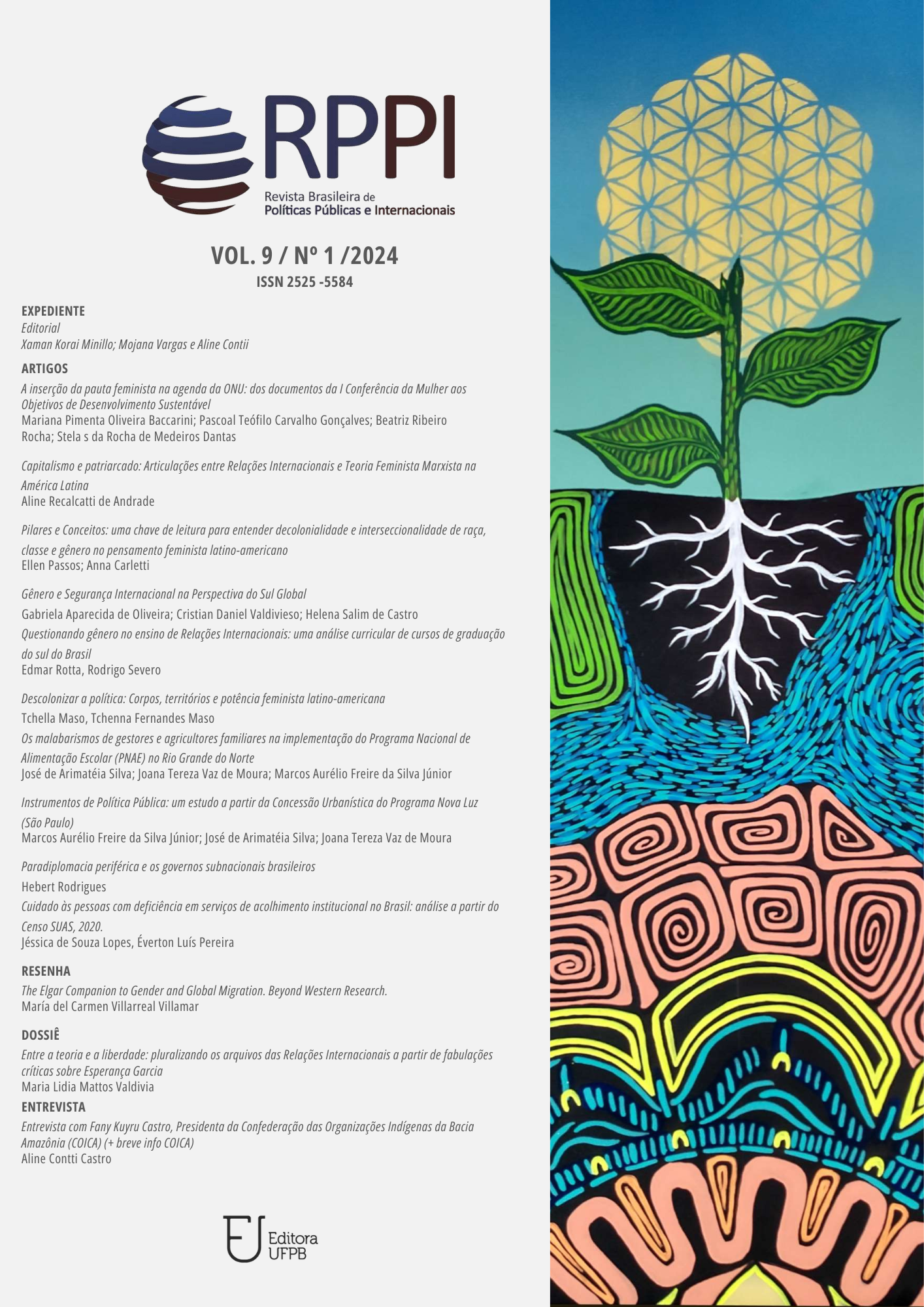A inserção da pauta feminista na agenda da ONU: dos documentos da I Conferência da Mulher aos Objetivos de Desenvolvimento Sustentável
DOI:
https://doi.org/10.22478/ufpb.2525-5584.2024v9n1.65886Keywords:
Feminismo, ONU, Conferências Internacionais, Mudança Institucional, ideiasAbstract
A large part of the stability of the United Nations Organization, created in 1945, depends on its capacity to adapt to new times. If it were to remain static, it would lose relevance in view of the political, social and cultural changes that directly affect international relations. Thus, understanding the possibility of institutional changes within organizations based on new ideas is the primary objective of this article. To this end, we proceeded with an exploratory research of the final documents produced at the main conferences organized by the UN on women and the Millennium Development and Sustainable Development Agendas. We sought to identify macro issues of the feminist debate in the final documents by means of inductive content analysis. From a detailed analysis using the Atlas.ti 9 software, it was found that part of the feminist movement's agenda is present in the documents analysed, but with limitations, being possible to capture some directions and raise future work hypotheses.
Downloads
Downloads
Published
Issue
Section
License
Copyright (c) 2024 Mariana Pimenta Oliveira Baccarini, Pascoal, Beatriz, Stela s da Rocha de Medeiros Dantas

This work is licensed under a Creative Commons Attribution 4.0 International License.
Autores que publicam nesta revista concordam com os seguintes termos:- Autores mantém os direitos autorais e concedem à revista o direito de primeira publicação, com o trabalho simultaneamente licenciado sob a Licença Creative Commons Attribution que permite o compartilhamento do trabalho com reconhecimento da autoria e publicação inicial nesta revista.
- Autores têm autorização para assumir contratos adicionais separadamente, para distribuição não-exclusiva da versão do trabalho publicada nesta revista (ex.: publicar em repositório institucional ou como capítulo de livro), com reconhecimento de autoria e publicação inicial nesta revista.
- Autores têm permissão e são estimulados a publicar e distribuir seu trabalho online (ex.: em repositórios institucionais ou na sua página pessoal) a qualquer ponto antes ou durante o processo editorial, já que isso pode gerar alterações produtivas, bem como aumentar o impacto e a citação do trabalho publicado (Veja O Efeito do Acesso Livre).




_.jpg)






.png)


.jpg)
_.png)
